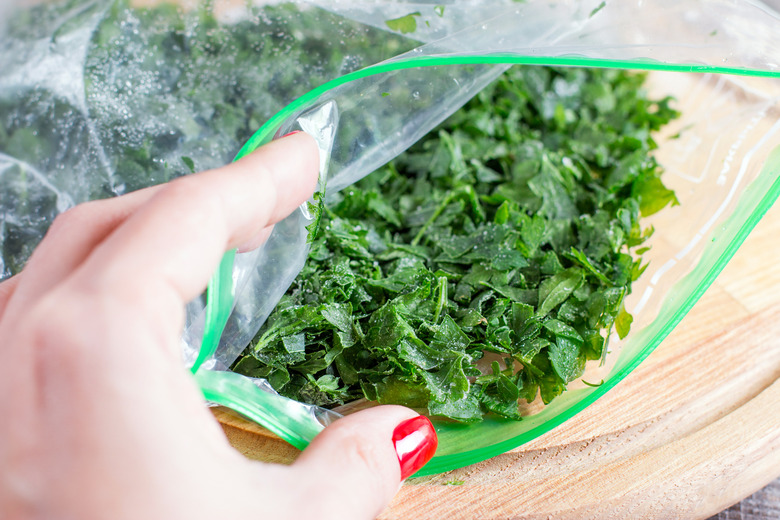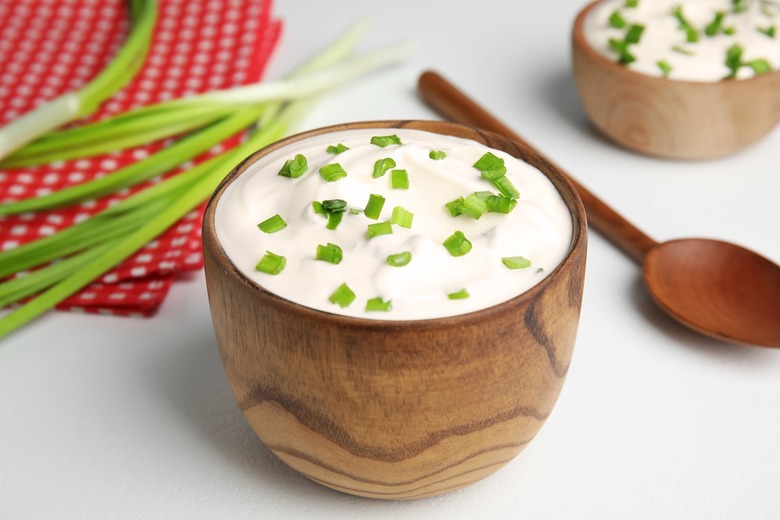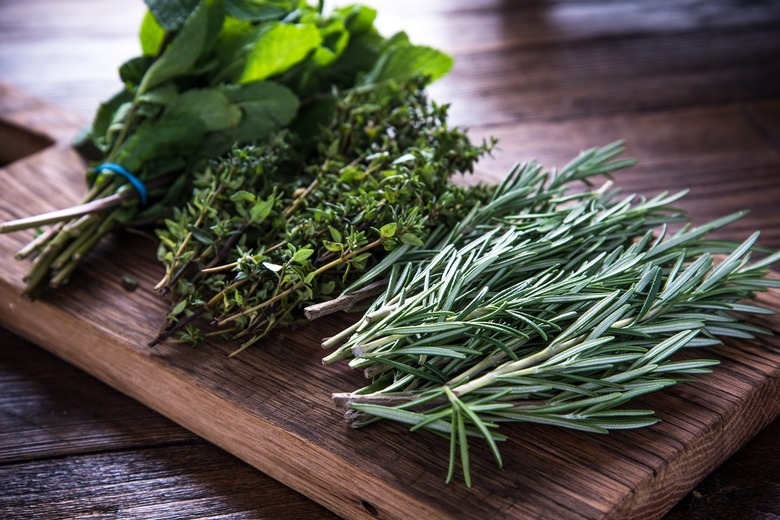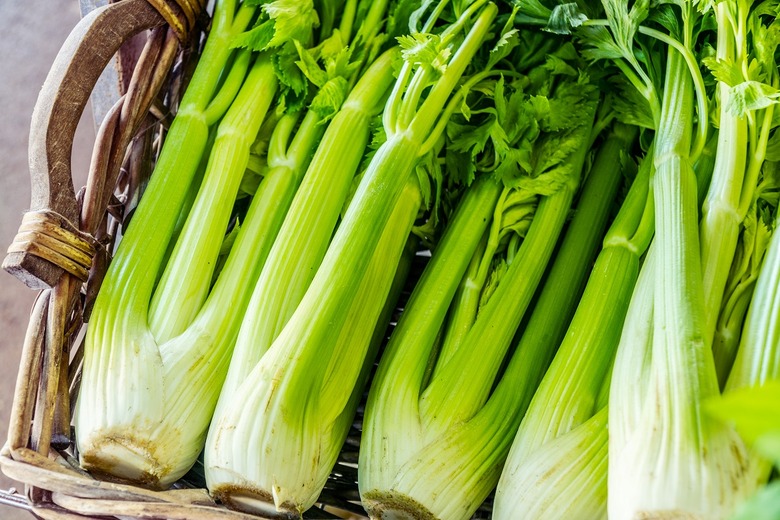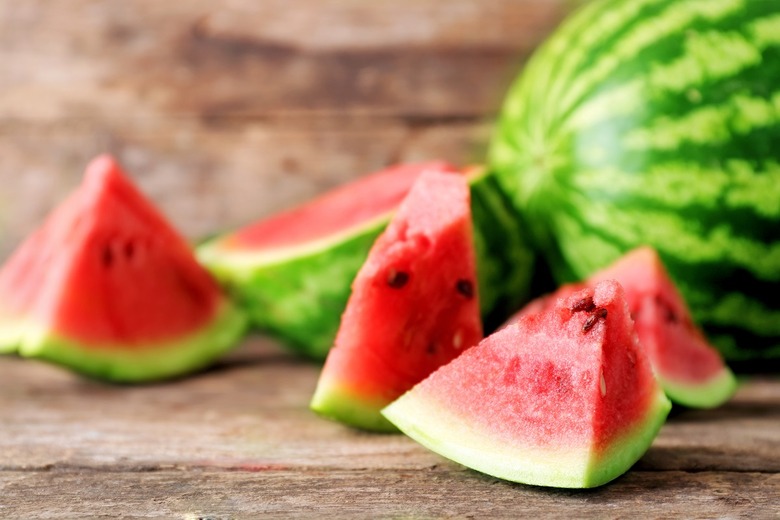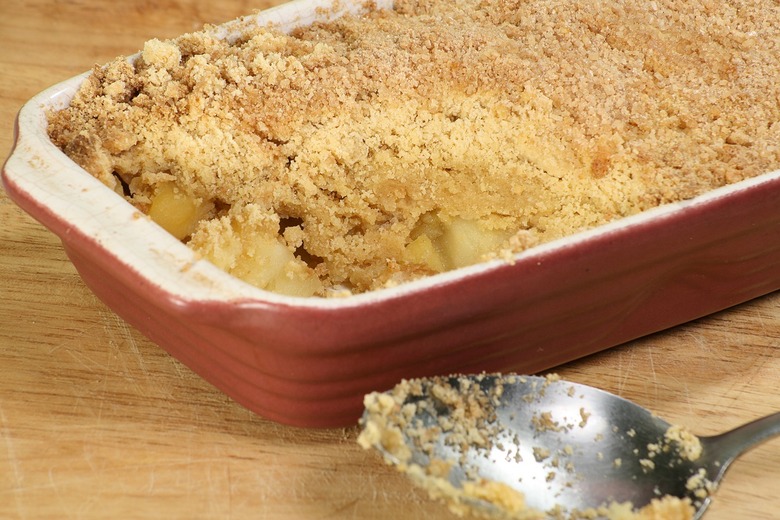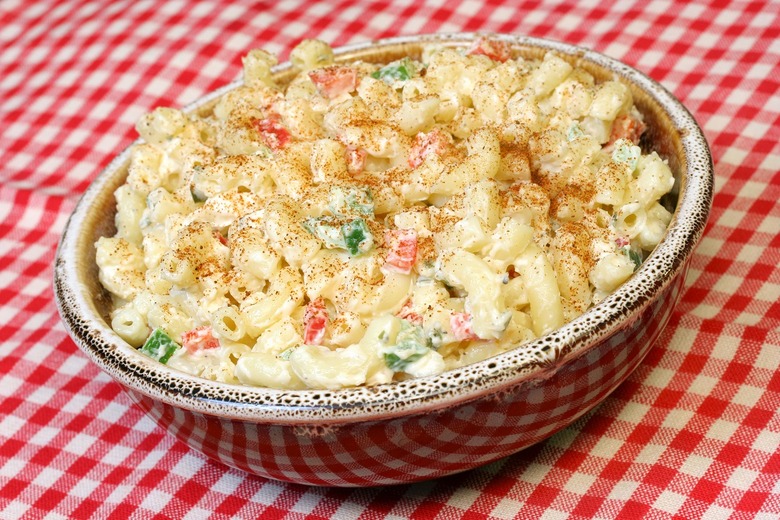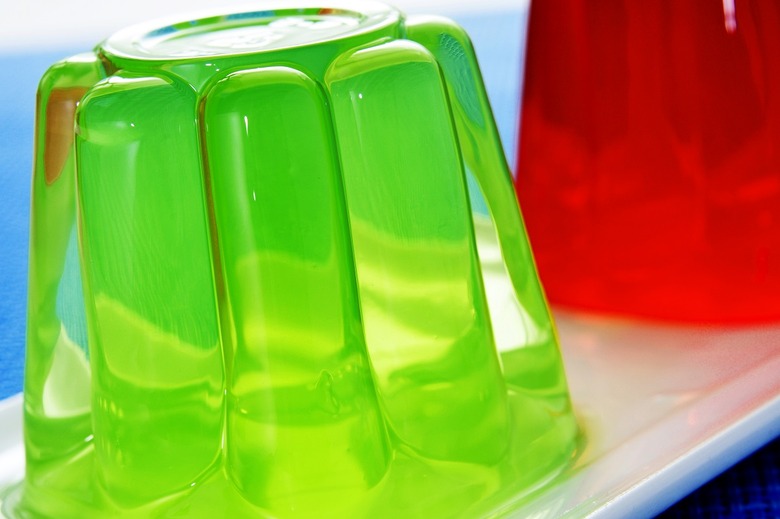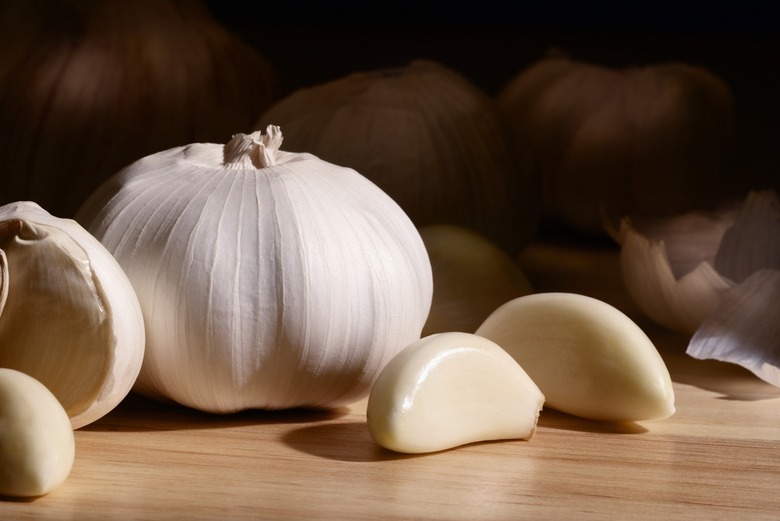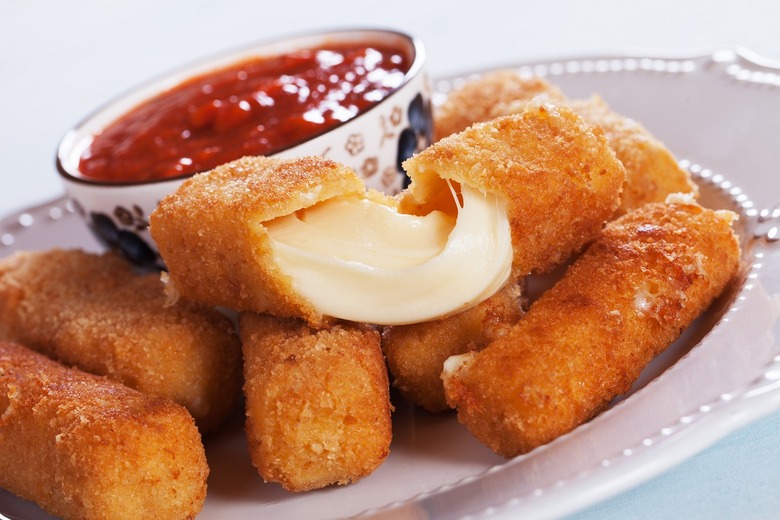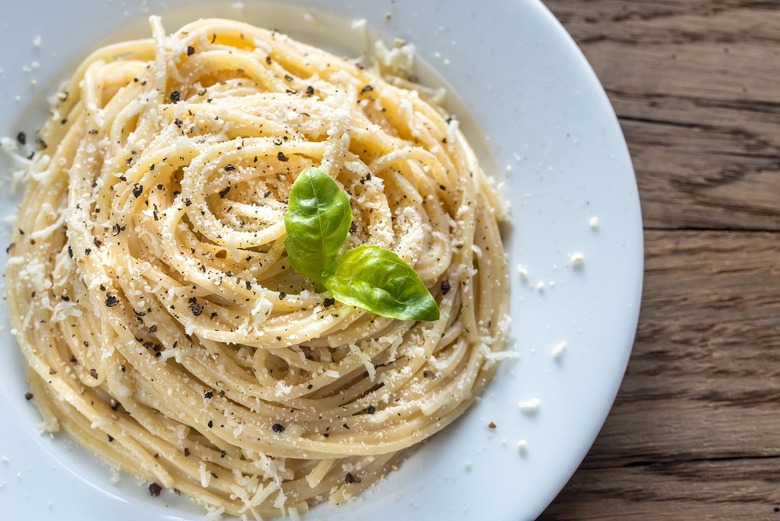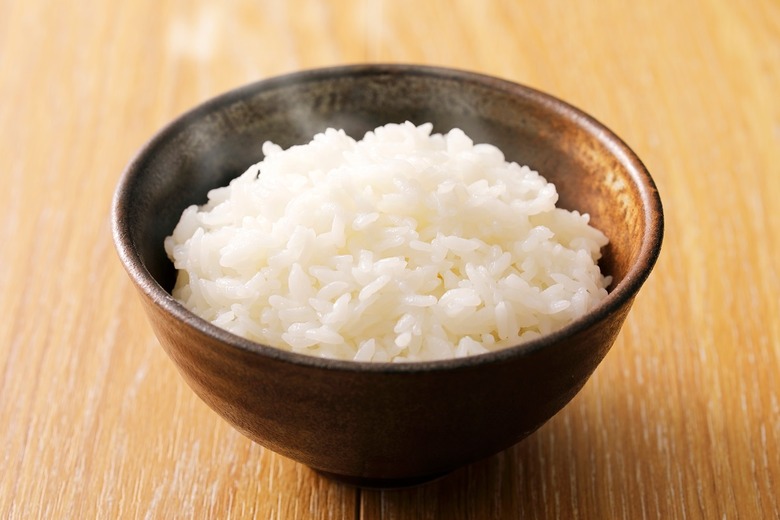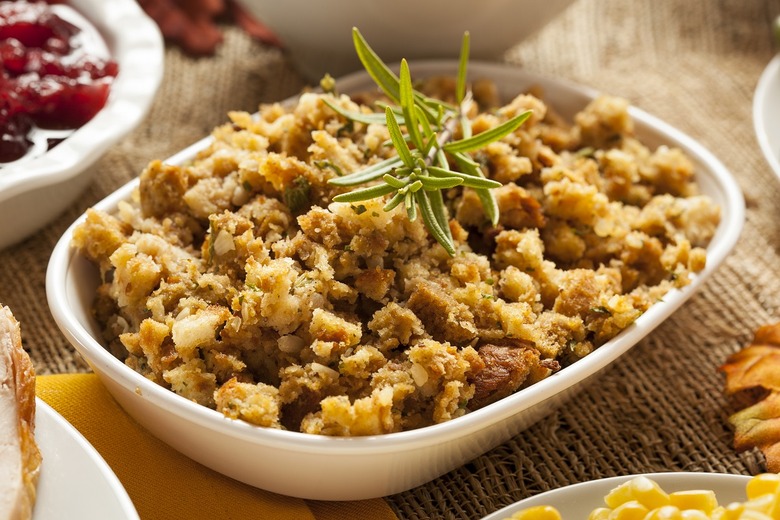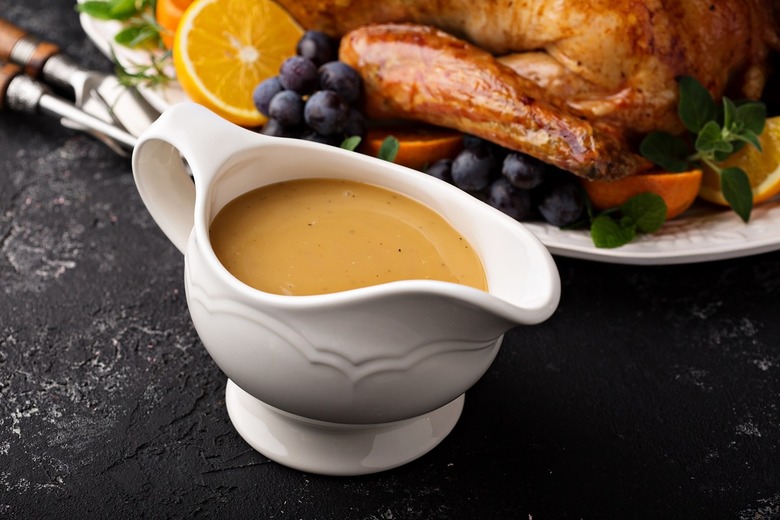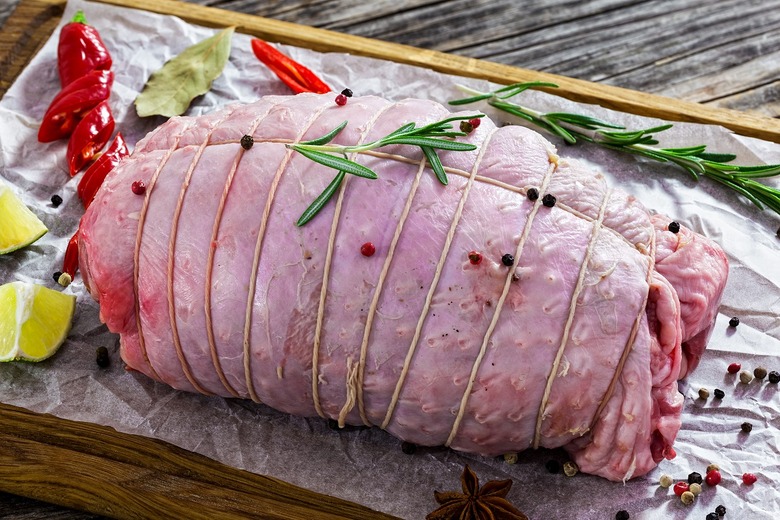Foods You Should Never Freeze
Sticking it in the freezer is one way to make your food last longer, but some items just don't freeze well. You may be able to look past a little freezer burn, but certain ingredients can totally degrade and morph, compromising quality and taste. As much as you wish your icebox could do it all, it has its limits. These foods should never be stored in your freezer.
Milk
Got milk? Don't put it in the freezer — at least, not if you want to drink it. Milk is completely safe to freeze for up to three months, but it's quite chunky once it thaws. It's OK to throw into a smoothie or use it in any of these recipes that use up a gallon of milk.
Cream-based products
Sour cream is safe in the fridge for about one to three weeks, but it doesn't freeze very well, and frozen sour cream will seriously mess up a good taco. Other dairy-based foods like cream cheese, ricotta and yogurt will lose their thick creamy texture when frozen and turn to watery lumps instead.
Salad greens
Don't expect to thaw leaves of lettuce to use in a salad later. Greens contain a lot of water. When you freeze them, it turns your once-crisp greens soggy and limp.
Herbs
Herbs turn limp when frozen. If you want to preserve herbs, freeze them in an ice cube tray with olive oil and use them to flavor dishes in the future. That's one of the best ways to make your food last longer.
Celery
Frozen vegetables are just as nutritious as fresh produce, but some contain too much water to freeze properly. For example, when you freeze celery, the water inside forms tiny ice crystals, creating the perfect storm for mushy snack sticks once they thaw. You could still use them in soup or stew though.
Cucumbers
Cucumbers are one of the most hydrating foods you can eat — largely because they contain so much water. Like celery, cucumbers lose their crunch if frozen.
Melon
If you're a fan of watermelon in the summertime, you know this fruit is super refreshing. In fact, it's just as hydrating as a glass of water. That said, watery produce does not mix well with our good friend, the freezer. Eat your watermelon when it's fresh, or deal with the mushy consequences.
Eggs
Cooked egg dishes are perfectly fine to freeze and can actually make a convenient on-the-go breakfast, but when they're still in the shell, it's a different story. The raw egg inside the shell expands when frozen, which may cause the shell to crack and ooze all over your icebox. Hard-boiled eggs and egg substitutes should also not be frozen.
Eggnog
Maybe you have homemade eggnog left over around the holidays that you know you'd really enjoy in a few months, so you're thinking about throwing it in the freezer. Don't. What you can do, though, is freeze commercial eggnog. It's safe to consume for up to six months.
Crumb-topped dishes
If you made a killer apple crumble or bread crumb-topped mac and cheese, it's not going to make it if you stash it in the freezer. Sure, the majority of your dish will survive, but the once-crunchy topping that made your dish whole? It's now mush.
Potatoes
Raw potatoes contain a surprising amount of water; when you freeze them, the consistency is altered irreversibly. Once the potatoes are thawed, they will take on a mushy, slimy texture. It will be exceedingly difficult to turn them into any of these beautiful potato dishes.
Mayonnaise
After you freeze it, mayo is not going to be something you ever want to spread on your sandwiches. The condiment separates. Mayonnaise has a pretty long shelf life in your fridge, but if you don't tend to use much of it, don't buy it in bulk.
Mayo-based salads
If you have leftover egg, chicken, ham, tuna or macaroni salad — or any mayo-based salad for that matter — stick it in the fridge for three or four days. Don't even think about putting it in the freezer; it does not freeze well.
Meringue
Lemon meringue pie is gorgeous because it's fluffy. When you freeze it, it becomes soft, tough, rubbery and spongy, losing just about every quality that made you fall in love with it in the first place.
Gelatin
If, for some reason, you need to freeze gelatin — don't. When you finally break it out again, it will "weep," meaning beads of moisture will form and you'll essentially be eating awkwardly wet Jell-O.
Egg-white icing
Icing made from egg whites is banished from the freezer. After you make the perfect batch of cookies awaiting frosting, you'll be disappointed to find your icing frothy and weeping, which may, in turn, cause you to weep.
Cheese
You can freeze cheese safely without encountering any health risks — but you will risk its quality. If you're preserving a quality chunk of Brie or processed sliced American, you may want to refrain. Freezing can alter the taste and texture. Hard cheeses like cheddar, Swiss and Parmesan can be frozen up to six months, though you may run into quality issues there too.
Tomatoes
Fresh tomatoes just don't hold up in the freezer. Once you thaw them, you're going to end up with a runny, gooey mess. However, if you want to save tomatoes for another purpose, such as to use in a soup or sauce, freezing them is perfectly acceptable. Their flavor holds up for up to eight months.
Radishes
If you freeze a radish, it'll become a limp, water-logged, sad vegetable upon thawing. It will also develop oxidized color, aroma and flavor. That won't taste good on a salad.
Avocados
When you thaw an avocado to slice on salad, turn into guacamole or eat with a spoon, you're going to be sorely disappointed. The creamy, light texture of an avocado transforms in the freezer. It becomes slimy, mushy and altogether unpleasant. Pro tip: if you're looking to make your guacamole last longer, one simple trick will extend its fridge life for up to three days.
Spices
Dried spices are among the groceries with incredibly long shelf lives, but if you don't cook very often, you might have some that are close to their expiration date. If so, preserving them in the freezer is not a good idea. You want to keep spices in a dry environment to prevent clumping. Thawing will result in strange flavors.
Garlic
When you freeze garlic, it becomes stronger and more bitter over time. If that's your bag, you might need to change your toothbrush out sooner than anticipated.
Fried foods
If you want fried foods, head to the freezer section of your favorite grocery store. If you make something like mozzarella sticks at home and then pop them in your freezer, they'll be soggy when you reheat them, even if you refry.
Pasta
Don't ruin grandma's awesome cacio e pepe by putting it in a cryogenic chamber. While it's perfectly fine to freeze leftover pasta, it's just not going to be the same once you thaw it. Noodles get pretty squishy in the freezer.
Rice
If mushy pasta turns you off, so will mushy rice. Frozen grains lose their taste and texture in the freezer.
Canned foods
If you're looking to make a quick dinner dish out of cans, store your unopened ingredients in the pantry, not the freezer. Water expands when it freezes, which could lead to a messy explosion. Open cans are another story, and shelf-life depends on what's inside. For example, opened shelf-stable ham keeps for five to 14 days in the fridge or one to two months in the freezer.
Stuffing
Thanksgiving dinner takes a lot of labor, and there are plenty of dishes you can make ahead and freeze, but stuffing isn't one of them. If you want, you can make the dry ingredients and wet ingredients separately, but do not mix them until you're ready to put them in the turkey or into a casserole, or else the dish will be susceptible to bacterial growth.
Gravy
Cream- and milk-based gravies will not hold up in the freezer. They'll separate and get lumpy. If you want to make your Thanksgiving leftovers last, flour-based gravy will keep up to four months in the freezer.
Pre-stuffed meats
Meats like lamb, pork and chicken that have been stuffed with dressing last just one day in the fridge, so it can be tempting to throw them in the freezer. Don't do it though, because the stuffing can grow bacteria during the cooling process and infect your meal once reheated, putting you at risk for foodborne illness.
Thawed Meat
If you thaw meat, you should probably cook it. Though freezing the meat again is perfectly safe, it will leave the meat dried out and altered. As a result, once you cook the meat again later, it may not be a texture you enjoy. Now that you know what not to freeze, maximize the shelf life of your food by learning how long meat and other foods last in the fridge and freezer.
More from The Daily Meal
20 Quick Dinner Dishes You Can Make Completely Out of the Freezer
The Healthiest and Unhealthiest Frozen Dinners
The Best Comfort Foods to Make Ahead and Freeze for a Weeknight
